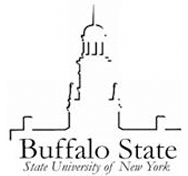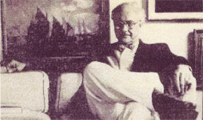“Albert Michaels, Histary – If you
have been weaned on a diet of liberal politics and
ideology, Dr. Michaels’ class will doubtless
be an eye opener. He teaches a more contemporary
history ranging from Latin American studies to U.S.
foreign policy and provides a rare glimpse of the
“other side” through biting, funny and
sometimes caustic lectures. His grading is tough
and there are those who seem to resent the
debasement of their high-school ideology, but in
time they grow up and realize how much sense his
classes make.”

This course is a general survey of the major
international problems which have confronted
the United States in the three decades
following World War I
This course is an introduction to the way
the United States' mass media cover major
foreign policy problems. First we will look at
the general problem, subsequently we will
analyze some glaring examples of media bias
toward foreign policy since World War II,
including: the Vietnam War, Israel, Desert
Storm and the role of the US media in the
coming to power of Fidel Castro and the
Nicaraguan Sandinistas. Next we will briefly
examine the ways in which PBS and Hollywood
distort international reality. At the end of
the course, we will compare and contrast what
we have learned with the liberal and
conservative positions expressed in two major
texts. The emphasis will be on the 19080's and
the media coverage of Ronald Reagan's foreign
policy.
The leaders of newly independent Latin
American nations faced a multitude of problems.
Geography, culture, economics and political
rivalries doomed most Latin nations to chaos
and economic under development. The first part
of this class will focus on the colonial legacy
and 19th century frustration. The class will
examine two unique attempts to grapple with
those problems in Haiti and Paraguay. Both
failed! The next two sections will cover failed
attempts at reform in Chile, Argentina and
Uruguay and then study equally futile
revolutions in Mexico, Cuba, Bolivia and
Nicaragua. The fourth section of the course
will focus on current problems, including
drubs, debt, emigration and the looming
pressure of the United States. The professor
will conclude with a pessimistic prognosis on
the current “successful”
experiments in political democracy and market
economics. Requirements include attendance and
informed participation, three take-home essays
(3-4 types pages), a book report (2-3 pages)
and an optional fourth take-home essay for
extra credit.
The purpose of this course is to give the
student the background to understand
contemporary foreign policy issues. This class
will complete a sequence comprising Great
Decisions I (U.S. Foreign Policy from
1945-1968) and Great Decisions II (Mass Media
and Foreign Policy from Vietnam to
Iran-Contra). This class will provide
invaluable background especially to the large
number of students taking Great Decision II.
Many of our students have no background
knowledge of the Carter, Reagan and Bush years.
For many of today's students twenty years ago
is ancient history.
This course will make a brief inquiry into
the subject of the 20th Century Revolutions
with an emphasis on Latin America. The class
focuses on the general problem of Revolution
and the shifts to three case studies, Mexico
1910-1940, Cuba 1959-1968 and Argentina
1946-1952. We will debate the professor's view
that revolutions cause more harm than good and
are generally an extension of liberal social
reforms.
This course will examine the dynamics of
international relations by looking at the role
played by the first academic Secretary of
State, Henry Kissinger. The main themes will
include: Kissinger's study of history and how
this knowledge influenced his strategies of
diplomacy, his world view of the Soviet Union
and Cuba, his relations with NATO, Japan and
the Third World. We will look at some of
Kissinger's early writings and analyze his
principal ideas. Special attention will be paid
to his studies of the careers of Otto von
Bismarck and Clemens con Metternick and to the
breakdown of the European state system in the
19th century. We will also take a brief look at
the competing worldviews of Paulo Jonson and
Gabriel Kolko.
The death of President John F. Kennedy
remains an enigma. Hundreds of books, articles
and films have covered this event. Oliver
Stone's film JFK is shown at least monthly on
cable TV. This class will examine the events
surrounding the tragedy. We will look closely
at what Kennedy and his advisers were
attempting to accomplish especially in
international policy. Topics covered will
include, the CIA, J. Edgar Hoover and the FBI,
the Vietnam War, U.S.-Soviet Relations, defense
appropriations and Latin American policy. The
focus will be on the degree to which Kennedy
was attempting to change the world role of the
United States and modify the institutions that
formulated international policies. The emphasis
will be on identifying those who lost and those
who gained from the President's death. This
class should shed light on the complicated
issues of Castro, Vietnam, U.S.-Soviet
relations and the partnership between organized
crime and the U.S. Intelligence Agencies. It
will help the student to evaluate the CIA and
the FBI and how they impacted the U.S. Overseas
activities. We will ask who really was J. Edgar
Hoover and what was his role in the 19060's?
Students taking this class should better
understand the Cold War, the U.S. Role in the
underdeveloped world and the influence of
corporate interests in formulating the
international role of the U.S. Most of us have
seen Stone's JFK; he might be wrong as to who
killed Kennedy but might be right in
identifying those who gained from the
President's death. The death of Kennedy was a
clear watershed moment in U.S. History. The
student after taking this class should have a
better understanding of power in America and
the real alternatives that faced our country in
the early 1960's. The course's secondary
purpose will be to analyze the controversy
surrounding the assassination itself. Major
interpretations including the Warren Commission
Report (1964), the U.S. Congressional House
Select Committee Investigation (1974) and the
works of Gerald Posner, Peter Dale Scott, Gus
Russo and Thomas Reeves will all be examined
both as to the logic and author's motivation.
The class will view and interpret Oliver
Stone's influential docudrama JFK.

